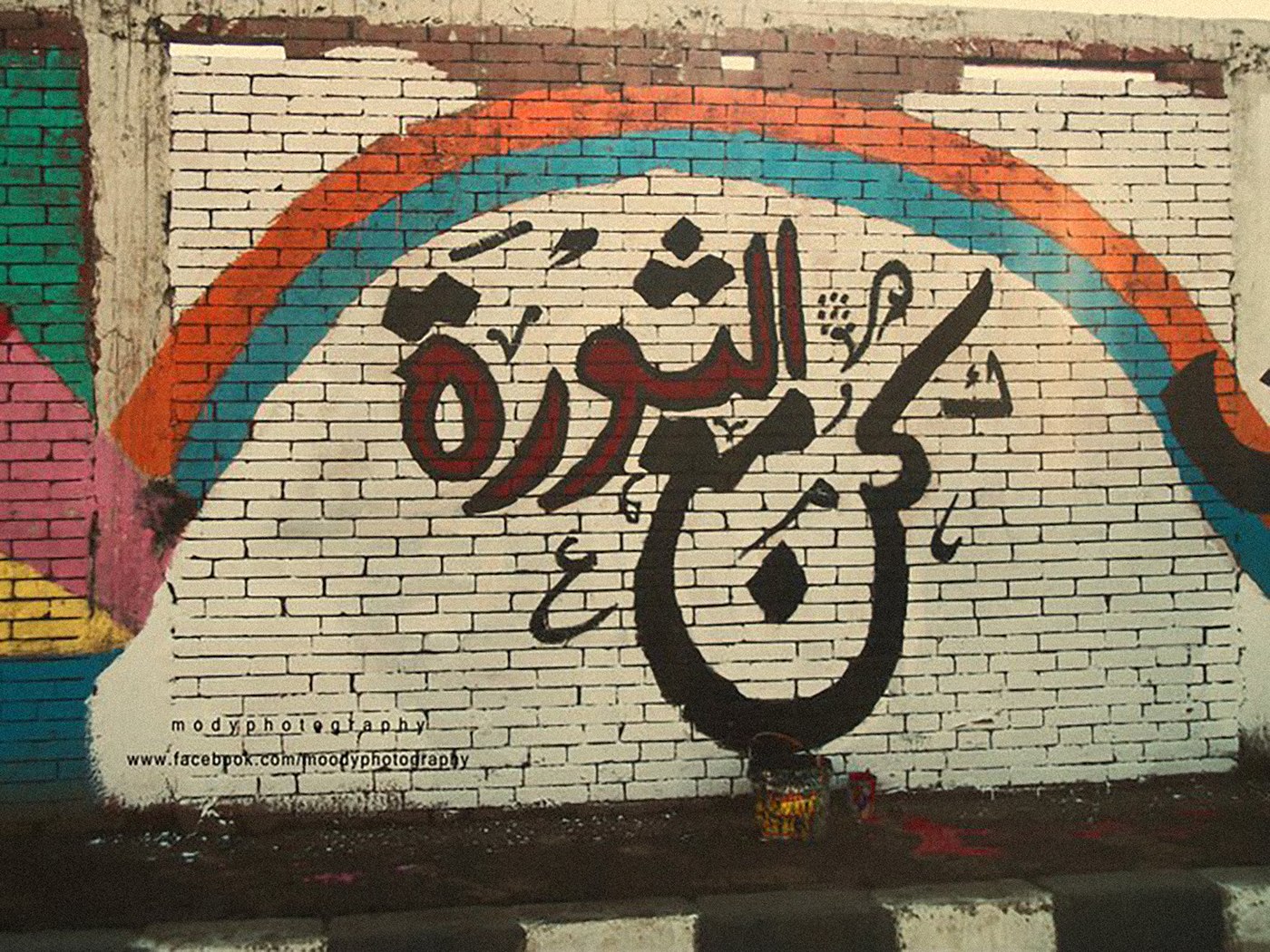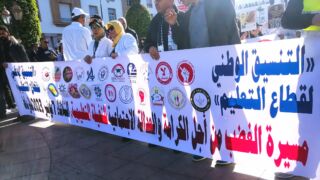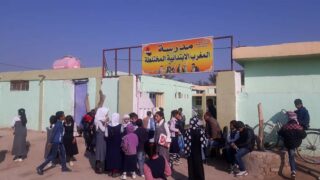
This publication has benefited from the support of the Rosa Luxemburg Foundation. This text may be reproduced in part or in full, provided the source is acknowledged.
Since the 1980s, the Moroccan left had not been able to take the lead in the Moroccan political scene; that was until the emergence of the “Arab Spring” democratic movements, including the 20 February Movement that took to the streets rising against corruption and political tyranny. With the emergence of the youth protest movement on 20 February 2011, the “radical” left parties (the Democratic Way, the Socialist Democratic Vanguard Party, the Unified Socialist Party, the National “Ittihadi” Congress, and some left-wing student movements) recovered and formed a unified movement alongside an Islamist opposition current, the “Justice and Charity Group”.
As for the rest of the parties of the left, that were part of the (prematurely aborted) “democratic transition” experience in the 1990s, they remained “institutional” parties, and drifted farther away from the “popular forces”, until they turned into parties of a “leftist ideology” and a “liberal practice”. They became narrowly utilitarian, bringing in notables who can win seats at elections to expand the party's representation within official state institutions. Their participation in the 2011 protest movement was very dull, with some of the youth of the Socialist Union of Popular Forces, and the Party of Progress and Socialism (which was a communist party in its militant past), taking part in the marches and meetings of the 20 February Movement.
The Left and the Uprising of 2011
Immediately after the calls for demonstrations, launched by the “February” youth on social media, groups of left-wing political currents and also the Justice and Charity Party, issued statements announcing their support and participation in the protests that these young people were calling for.
The Realities of the “Left” in Morocco
01-03-2020
One of the first political currents to announce its support was the Democratic Left Alliance (consisting of the Unified Socialist Party, the Social Democratic Vanguard Party and the “Ittihadi” Congress Party), which announced in a statement on 13 February, 2011 that “the alliance stands beside all popular initiatives demanding true democracy, including the 20 February Movement.”
Three days later, the National Committee of the Democratic Way Party also published an appeal to the Moroccan people, entitled “Let's all fight for a decent life and the elimination of the Makhzen’s tyranny,” which called on all the party's activists to take part enthusiastically in all the popular struggles, including those of the 20 February Movement.
With the emergence of the youth protest movement on 20 February 2011, the “radical” left parties (the Democratic Way, the Socialist Democratic Vanguard Party, the Unified Socialist Party, the National “Ittihadi” Congress, and some left-wing student movements) recovered and formed a unified movement with an Islamist opposition current, the “Justice and Charity Group”.
On the same day, the national office of the Justice and Charity Group issued a statement affirming its “support for all initiatives calling for the building of a state of freedom, dignity and justice, including the 20 February protests,” stressing the peaceful nature of its participation, and calling on “everyone to be vigilant against any potential provocations.” The group’s political department stressed that stance a day later, when it announced its support for the 20 February protests focusing on “the peacefulness of the sit-ins, respect for differences and diversity in slogans and demands, and caring for the safety of properties.”
A Left That is Detached from the Street
The “government’s left” parties (the Socialist Union of Popular Forces and the Party of Progress and Socialism), were, overall, no longer engaged in calls for societal change emanating from the street. The first was silent, neither supporting nor rejecting protest calls during the 2011 movement, until it issued an official statement after the 20 February Movement rallies. However, at the same time, the so-called “20 February Unionists”, who are members of the “Youth of the Party”, issued a statement on 18 February, 2011 announcing the emergence of a current within the Socialist Union that adopts “the full participation in the 20 February movement, in implementation of the right to peaceful demonstration, renouncing all anarchist ways of expression, holding on to territorial integrity and the demand for parliamentary monarchy and universal human rights.”
The leftist parties that were part of the (prematurely aborted) “democratic transition” experience in 1997, remained “institutional parties”, and drifted farther away from the “popular forces”, until they turned into parties of a “leftist ideology” and a “liberal practice”, to the extent of becoming narrowly utilitarian, bringing in notables who can win seats at elections to expand the party's representation within official state institutions.
As for the Party of Progress and Socialism, it officially announced in a statement issued by its Political Bureau on 15 February 2011, that “the party can only engage in organized and responsible political and social movements aimed at achieving democracy and social justice, through employing the mechanisms and methods of peaceful democratic engagement from within the official institutions. It rejects chaos and works to maintain the stability necessary for any progress.” However, on the 20th of February, a signed statement was issued in the name of the “militant activists of the Party of Progress and Socialism participating in the February 20 demonstrations,” affirming “their unconditional support for the demands of the Arab peoples in true democracy and a decent life against the regimes of oppression and tyranny”, considering that “Morocco, much like other countries in the Arab world, is in urgent need for a true democracy based on a modernist constitution that guarantees the separation of powers and the independence of the judiciary system.”
The Left and the Islamists
Since 2011, the Moroccan regime has reshaped the official political scene by “allowing” an Islamist party to enter the government in order to handle the 20 February Movement. This kind of reshaping was also done in 1997, in coordination with the left’s opposition parties at the time, when King Hassan II appointed the “Ittihadi” (Unionist) Abd al-Rahman al-Youssefi as head of a government that was comprised of national parties that had a long history of opposition. Therefore, the alliances or conflicts between the “governmental left” parties and the Islamic Justice and Development Party fall under the logic of a governmental coalition, that is, by consideration of the number of parliamentary seats to be won and how to achieve the parliamentary majority, as well as to consult with the royal palace. These considerations outweigh the ideological alliance or conflict. This explains the sporadic repulsion and attraction in the relationship of the Justice and Development Party with the Socialist Union, which can be illogical and not based on ideological-political grounds, as was the case with the dispute about forming the 2016 government. It also explains the ongoing alliance with the Party of Progress and Socialism since the 2012 government until now.
The "Gloomy" Economy of Morocco
15-07-2019
With the exception of the Federation of the Democratic Left (which includes the Socialist Unified Party, the Vanguard Party, and the “Ittihadi” Congress, and participates in the elected local institutions and parliament, albeit with a small number of seats), the leftist currents that were and still are in the opposition outside the official institutions have always refused coordination and alliance with the Islamists. Their political conflict has even amounted to physical violence at certain points, especially in universities that have known a history of dispute in the student arena, mainly between students of the Justice and Charity Group, the The “Qa'idiyyin” (Basist) Students,and other leftist currents.
The rapprochement between the Moroccan leftist opposition and the Islamists opposition in the street (the Justice and Charity Group) emerged at the beginning of 2008, through the establishment in several cities of coordination units against the high costs of life and the deterioration of public services. This was the first coordination between opposition currents from the leftist and Islamic sides, as all these initiatives, coordination units, and protests were focused on the social dimension of the high prices and the deterioration of public services, such as water and electricity networks and public cleanliness. These coordination units began to diminish in the beginning of 2011, due to the “solid-core” monopolization of decision-making by the coalition of the Islamists and the radical left parties, which distanced the rest of the leftist currents and individuals from influencing decisions.
The rapprochement between the Moroccan leftist opposition and the Islamists opposition in the street (the Justice and Charity Group) emerged at the beginning of 2008, through the establishment in several cities of coordination units against the high costs of life and the deterioration of public services. This marked the first coordination of its kind between opposition currents from the leftist and Islamic sides, as all these initiatives, coordination units, and protests were focused on the social dimensions.
In conjunction with the lack of coordination between Islamists and leftists over social issues, the “Arab Spring” movements emerged, demanding the overthrowing of the tyrannical regimes and, at the same time, the 20 February youth also called on social media for protests against corruption and political tyranny. Thus began a more robust political coordination between the currents and parties of the radical left and the Justice and Charity Group. For the first time, they addressed publically their political opposition and protested the political, social, and economic situation in Morocco. Whereas, before that, the two currents only agreed on issues such as supporting the Palestinian cause or condemning the war in Iraq.
A Liberal Left
After the protests in the Moroccan street subsided again, and with the rise of the Islamists to power, part of the radical left, whose majority harbored liberal tendencies, chose to polarize in a “partisan federation”, in order to join the elections and become part of the political game. This decision by parties that were earlier supportive of the youth movement demanding “comprehensive” democratic change, exposed that these parties were more than ready to enter the official political spheres with its stakes and political “requirements” for governance.
Right before the parliamentary elections of 2016, the leaders of that left began to sever any link or dialogue with the leaders of the Justice and Charity Group, to the extent of attacking the group in media statements (as Nabila Munib, the coordinator of the federation and general secretary of the Unified Socialist Party, did). All coordination with the Islamic group on the ground was halted, including coordination with regard to the sit-ins and protests condemning the arrests or protesting the sentences of activists of the “Rif movement". Matters came to the point that one “leftist” current would organize a march condemning the sentences, without the participation of the Justice and Charity Group, while the latter would be calling for another march of solidarity later.
A Left with a Mission for Human Rights
At an early stage in the history of independent Morocco, the radical current within the radical left (the Democratic Way, which contains within it voices calling for tactical coordination with the Islamists for democratic change and confronting political tyranny), chose to work for human rights, by joining the Moroccan Association for Human Rights, alongside members who were “on the left” of the Socialist Union Party; named “The Comrades of the Martyrs”.
What Has Remained of the Left in Algeria?
06-03-2020
The “human rights’ front” became the arena where left-wing radical currents expressed their political stakes in the public space, by working on issues concerning human rights. However, in parallel, the radical left had not been able to attract large numbers of Moroccan popular groups, not even when local and international political conditions were compatible to their plans. Eventually, most of these left-wing parties, whether radicals or reformists, became hollowed out, with no real presence among the popular bases.
The content of this publication is the sole responsibility of Assafir Al-Arabi and Rosa Luxemburg Foundation cannot accept any liability for it.
Translated from Arabic by Sabah Jalloul
Published in Assafir Al-Arabi on 09/01/2019




